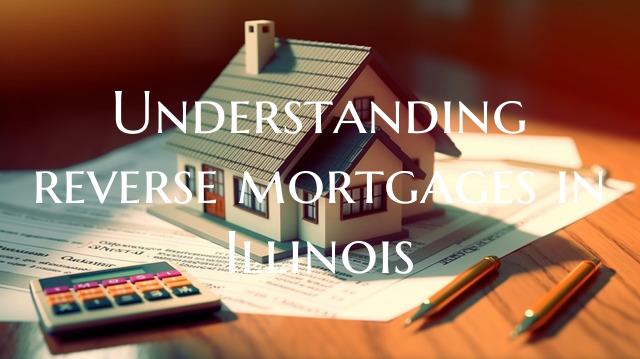Understanding reverse mortgages in Illinois

Introduction: Reverse mortgages can be a valuable financial tool for homeowners looking to supplement their retirement income, especially in a state like Illinois with a growing aging population. In this guide, we will provide an in-depth look at reverse mortgages in Illinois, exploring how they work, the eligibility requirements, the benefits and potential risks involved, as well as the specific regulations that apply to reverse mortgages in the state.
How Do Reverse Mortgages Work? Reverse mortgages are loans specifically designed for homeowners aged 62 and older who have equity in their homes. Instead of the homeowner making monthly mortgage payments to the lender, as with a traditional mortgage, a reverse mortgage works in the opposite way. The lender makes payments to the homeowner, either as a lump sum, a line of credit, monthly payments, or a combination of these options, using the equity in the home as collateral.
Eligibility Requirements in Illinois: To qualify for a reverse mortgage in Illinois, homeowners must meet certain eligibility criteria. These typically include being at least 62 years old, owning the property outright or having a low mortgage balance that can be paid off with the reverse mortgage, and using the property as the primary residence. Additionally, homeowners are required to undergo a financial assessment to ensure they have the ability to continue paying property taxes, insurance, and home maintenance costs.
Benefits of Reverse Mortgages: One of the key benefits of a reverse mortgage is that it can provide a source of tax-free income for homeowners in retirement. This additional income can help supplement Social Security benefits and other retirement savings, providing financial security and flexibility in later years. Reverse mortgages also allow homeowners to stay in their homes and retain ownership, while accessing the equity they have built up over time.
Potential Risks to Consider: While reverse mortgages can offer significant benefits, it is important to be aware of the potential risks involved. These may include high upfront costs, such as origination fees and mortgage insurance premiums, as well as the possibility of accruing interest on the loan balance over time. Additionally, because the loan is repaid when the homeowner moves out of the home or passes away, there may be less equity available to pass on to heirs.
Regulations in Illinois: Illinois, like other states, has specific regulations governing reverse mortgages to protect homeowners and ensure transparency in the lending process. It is important for Illinois residents considering a reverse mortgage to be aware of these regulations, which may cover areas such as borrower counseling requirements, mandatory disclosures, and limits on loan amounts.
Conclusion: As the population of older adults continues to grow in Illinois, understanding reverse mortgages becomes increasingly important for homeowners seeking to secure their financial future in retirement. By exploring how reverse mortgages work, the eligibility requirements, the benefits and risks, and the specific regulations in Illinois, homeowners can make informed decisions about whether a reverse mortgage is the right option for their individual circumstances.
